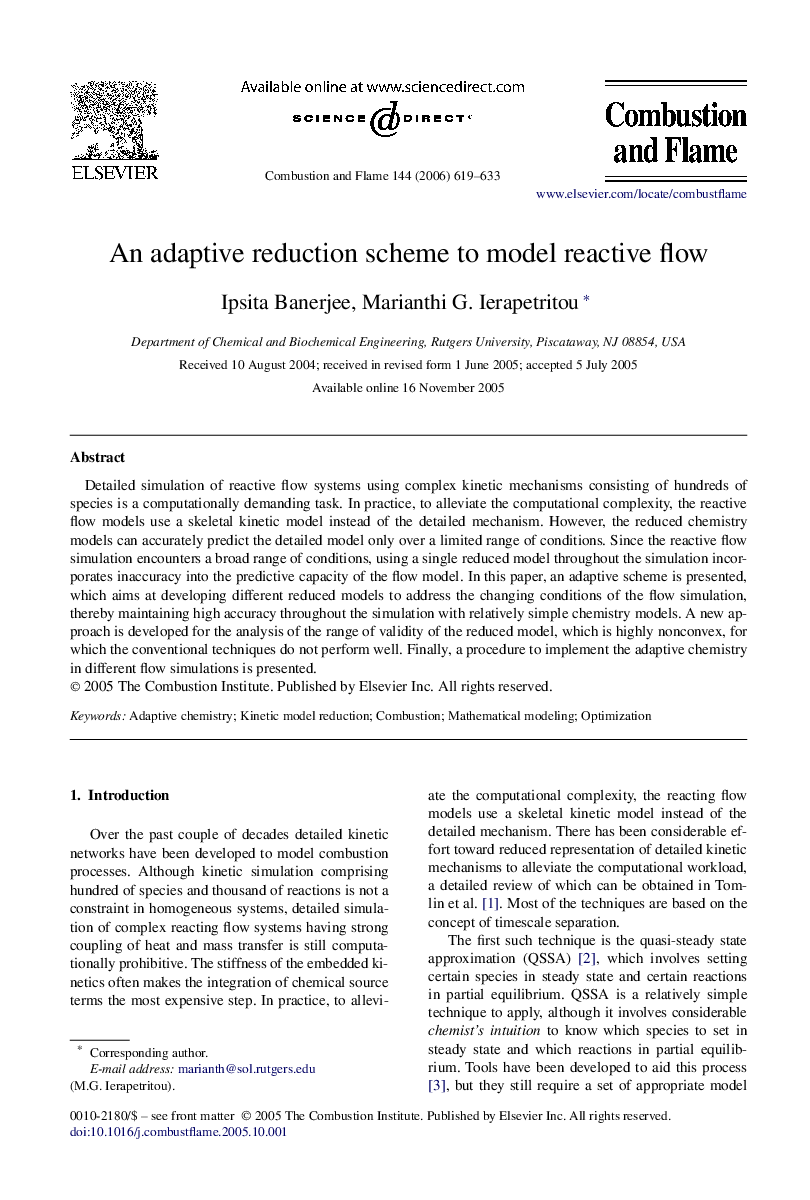| Article ID | Journal | Published Year | Pages | File Type |
|---|---|---|---|---|
| 167518 | Combustion and Flame | 2006 | 15 Pages |
Detailed simulation of reactive flow systems using complex kinetic mechanisms consisting of hundreds of species is a computationally demanding task. In practice, to alleviate the computational complexity, the reactive flow models use a skeletal kinetic model instead of the detailed mechanism. However, the reduced chemistry models can accurately predict the detailed model only over a limited range of conditions. Since the reactive flow simulation encounters a broad range of conditions, using a single reduced model throughout the simulation incorporates inaccuracy into the predictive capacity of the flow model. In this paper, an adaptive scheme is presented, which aims at developing different reduced models to address the changing conditions of the flow simulation, thereby maintaining high accuracy throughout the simulation with relatively simple chemistry models. A new approach is developed for the analysis of the range of validity of the reduced model, which is highly nonconvex, for which the conventional techniques do not perform well. Finally, a procedure to implement the adaptive chemistry in different flow simulations is presented.
